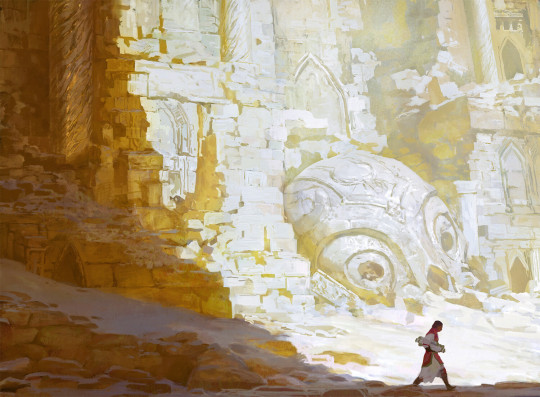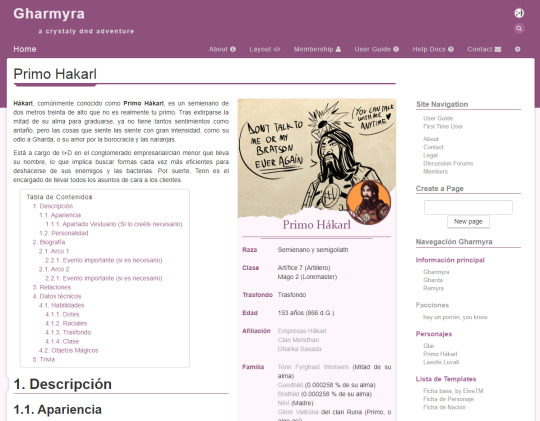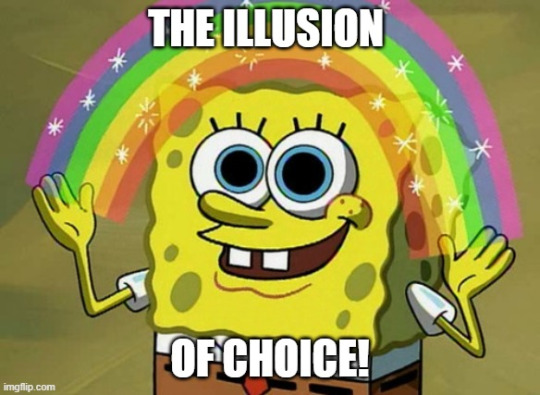Note
What's a good way to introduce the players to the lore/history of your campaign's world, especially in cases of homebrew?

DM Tip: Loredumps
I was going to write a whole into about how everyone knows that the fantasy genre is rightly lambasted for long, indulgent tangents ( sometimes from the very start of a work), but then I realized I was just repeating things that everyone who's picked up more than a single genre novel knows. SO, instead we're going right into storytelling mechanics, and what I've found is the best way to deliver world information to your players over the course of a campaign.
The first thing that any aspiring loremaster needs to keep in mind is immersion: the emotional bond your audience has to your work. You can have the most finely crafted, intricate lore possible but unless the players/characters already care about the subjects that the lore pertains to it's going to sluice out of their heads like water through a sieve. This is why long prologue info dumps are so generally awful, because the audience not only has no emotional connection to any of the events going on, but a longer infodump actively distances the time between the audience starting and a work and an audience caring about a work, and the longer that it takes them to care, the more likely they are to check out.
Compare and contrast the dual prologs from the extended edition of LOTR: Galadriel's distant, detached, history that deals with events so far in the past that most people have forgotten it. Vs. Bilbo's "Concerning Hobbits", a folksy little introduction that is framed as a character we can see remarking about the world he lives in, making jokes about his neighbors and endearing us to Hobbit kind.
Bilbo's prologue is an exercise in what I call "Table Setting", when the storyteller gets you up to speed on the information you NEED to know for the scenes that are about to follow, both in terms of world details all the characters know about, and in properly tuning your emotional dials to be in sync with the characters who are about to experience the story first hand.
You can sneak in details about the world this way, but through the filter of "Everybody knows", in that there is common information about big events and how they directly contrast with things that're present in the character's lives.
"Hobbits have been living and farming in the four Farthings of the Shire for many hundreds of years. Quite content to ignore and be ignored by the world of the Big Folk — Middle-Earth being, after all, full of strange creatures beyond count. Hobbits must seem of little importance, being neither renowned as great warriors, nor counted among the very wise."
THERE, we've just set the stage for the fact that this is a big world full of magic and mystery and also given the audience the emotional context that the shire is a safe and slightly boring place, the exact emotional context we'll be taking with us out into the larger world.
You can keep the lore/world information in your back pocket as a storyteller, and continue to divy it out as you come up with more " Everybody knows" information during your moment to moment narration. Everybody knows that there might be war looming soon, we know that because the king's tollmen are collecting at the bridge we're trying to cross, and traffic has totally backed up. Everybody knows there's a dragon in yonder hills, we passed a burnt out old farmstead that's been there since you were a kid, and that cute gal at the tavern you've been drinking with has drunkenly boasted that she could sneak into its lair and tie it's tail in a knot. Oh yeah, everyone knows the mages of Sul-Sifga rule the world from their seven crystal spires atop the Otol Mountains, Their sigil is printed on a stout stone in every town square and seeing them reminds you of the time your watched your brother get executed. There's no reason to bring these things in advance, when they can be whispered in as your players/audience experience the world, slowly building on their investment until they're as much experts in your world as you are.
Hope that gives you something new for your DM toolbox, Below the cut I'm going to talk about how to do loredumps the RIGHT way, and how by being clever you can actually just babble out random facts you made up and have your entire party hooked.
Remember what I said about how if people didn't already care about the things your lore was talking about, they wouldn't care about your lore? Well, I've shown you one way to get around that, here's another:
Have someone the party cares about deliver the lore, and share how much it means to them.
Since we were already talking about lord of the rings, lets consider how much more impact Gandalf's scene explaining the ring is compared to the one we stat through with Galadriel. We LIKE Gandalf, we trust him because the characters trust him, so when he's FREAKED THE FUCK OUT by a little trinket that Bilbo brought back on his adventures? We know things are serious. You can have your own NPCs loredump this way after they've ingratiated themselves to your party. When the marshal lays out their maps and shows the party why they need to undertake this mission to slay the dragon to avert the war, suddenly your party has emotional context for all the new information they're about to be given.
You can also do this Matt Mercer style, by creating an NPC who would totally infodump on people they met IRL and have the party bounce off of them in RP. They'll encode the information they gained during that loredump as part of their interaction with that person, so then later when that lore pops up in actual gameplay they'll think " OH SHIT, ITS THE THING THAT GUY WAS TALKING ABOUT". Academics are great for this, but you can also use priests to share moral norms or mythological events, political hardliners to talk about history, or shameless gossips to spill the tea on complicated interpersonal connections.
IMO though, the best way to do loredumps is to have parties seek them out themselves: going to archives and beginning research, perhaps running it like a puzzle or skill challenge, perhaps facing off against some kind of roadblock while they’re there if you want to put more focus on it. That way the loredump seems like an actual reward, rather than something you’re just heaping on them to keep track of. Said loredump should always present actionable information within both the current adventure and foreshadow future details, to make the reward worth it.
921 notes
·
View notes
Text
Tired of having your party meeting in taverns? Here are some options for alternative starting locations for you and your party;
-A party of a mutual friend. Could be a rager of a party or a masquerade
-A boat. Secluded and limited options for socializing, perfect.
-A sport competition. Wrestling, discus, or javelin throwing. Causing rivalry could develope great stories
-A prison. An escape lead by a group of players can end with amazing results.
-An orgy. Make it awkward, make it fun.
7 notes
·
View notes
Photo




As some of you know, I DM a rather long-running Dungeons and Dragons 5e campaign, known as Gharmyra. It’s based off a setting I’ve had around for 6 years, and there is a lot of lore to it. So, we decided to finally get around and make a wiki for it! I have a lot of information scattered through word documents, but sometimes you want things to look better and to be able to link pages around, and a wiki is a surprisingly nice way to tidy things up.
First and last screenshot are two of the player characters, @eine-krone‘s PC, Cousin Hákarl, and another player’s character, Laestis. They wrote the info in them, and the art is mine (and the fancy table is of Eine’s design!)
Anyways, it’s going to be loads of work but it’s surprisingly handy to navigate around. We’re using wikidot, which is a free service with plenty of customization. I’d recommend giving it a try!
50 notes
·
View notes
Text
Is it wrong, as a DM, for when my players get into small, easily avoidable fights, to play Pokémon battle music?
IS IT WRONG???
12 notes
·
View notes
Text
Less Prep = More Fun
I find I have more fun DMing when I don't prep solutions, only problems.
This lets me get surprised and find out how the PCs will overcome a challenge, instead of deciding ahead of time and just waiting for it to happen.
Example under the cut :)
Example:
The door to a ruined temple only opens if an appropriate sacrifice is made. The module notes say the sacrifice must be blood. They also put a riddle on the door where "blood" is the answer.
This is too specific. I look up some info on the god this temple was dedicated to and discover they were a god of murder and violence.
I decide anything that would please this god will work.
I put some clues in the area: the god's symbol on the door, carvings of violent scenes on the altar, a stone knife nearby.
How will the PCs convince this slumbering god of violence and murder to let them inside his ancient requilary? I have no idea, but I can't wait to find out!
53 notes
·
View notes
Text
DM tips #5
Let cross table RP happen. Nothing feels quite as good as getting to rest the story and left your players interact with one another. When you don't need to worry about who's where, what machinations are happening, and you can just sit and listen, it's genuine bliss.
It also really gets the emotional investment going. Think about the awkwardness of going on a date. You calm down when the not blatantly obvious subjects come up. Not only will your players get invested in each others characters forming personal bonds and frenemies and such, but they will also feel more attached to their own character. When you have to small talk as a character, you will invent backstory you never thought of, just to give yourself something to talk about. And over not long at all, you will feel an attachment bond to your character.
55 notes
·
View notes
Text
Evil characters is easy to have in the party if the following is meet:
They are being played by some who is in constant communication with the table about their actions and how they effect the tables fun.
When their evil is not boiled down to i like chaos and killing.
They have something that bonds them to the party and their goals some what align.
These same rules can be applied to ALL character types.
26 notes
·
View notes
Text
dungeon master tip #1
this is something that popped up in a conversation between me and @all-made-of-stardust since i was dishing out some DM advice. and this is pretty much a term that popped up in the convo - and how this is an essential DM tool to use when running any campaign.
a thing that a lot of new DMs are at risk of (hell, even well-seasoned dungeon masters), would be the ill-famed railroading. this is a table top term coined for the action of forcing your players to go down a specific path that you envisioned - essentially, taking away their agency. player agency is such a sacred thing, because it’s the heart of the game. it’s what makes things fun, and ultimately, what keeps people coming back to play.
it’s really important to avoid something like railroading, in order to create a much more wholesome and satisfying table top experience. i suppose your question would be, “but if i can’t control my players, how will things go according to my plans?” well, fellow dungeon master, i have the answer for you, and it’s called -

Keep reading
111 notes
·
View notes
Text
the thing i love about DND is its capacity to show how ppl care for one another. this sounds very dumb, but seriously, DM’ing has shown me that more often than not, ppl actively choose to help.
i once DM’d a campaign where the PC’s were parents of middle schoolers. i wasn’t sure how much my players were going to engage with their kids at first, but just in case i made sure their children were well rounded. i gave them struggles i thought were relatable to those at the table, and then i went about planning the big fights and magical plots that i thought the players would find more exciting.
to my great surprise and joy, the players chose to help, support, and care for their fake children at every turn. if they had to choose between getting an awesome magical power and making sure their son didn’t feel insecure about his first gay crush, they would choose the kid every time. the game became about what it means to be a good parent, about what legacy we leave for those who come after. i know it was especially rewarding for those of us at the table who didn’t have that relationship with their real parents, but instead got to give that to their imaginary child.
my personal highlight of the game? when the final battle was not won through heroism and blood, but through a soccer mom offering a thirteen-year-old a hug.
264 notes
·
View notes
Text
Nico di Angelo from the Percy Jackson series
you can tell a lot about a person by who their first fictional crush was. it also explains every fictional crush they’ve had since
who was yours? i’ll go first: mine was batman :x
45K notes
·
View notes
Text
you ever look at your s/o and think, "you make life worth living?"
#boyfriend#romantic academia#not a hopeless romantic anymore wooo!!#romance#relationship discussions#relationship#bloggin
17 notes
·
View notes
Text
i found my dance partner
3 notes
·
View notes
Text
i believe in yuuji itadori supremecy
6 notes
·
View notes


